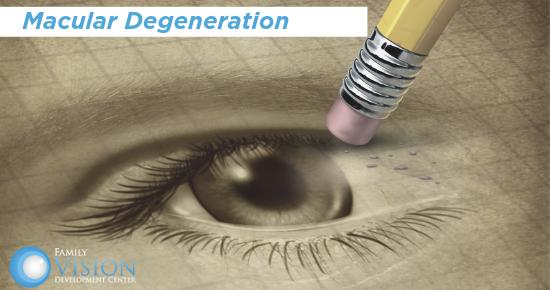Chances are you know someone who has been diagnosed with macular degeneration, as it affects more than 10 million people in the US. Read below for an overview of this disease and how you can protect yourself from being affected.
What Is Macular Degeneration?
Also known as age-related macular degeneration, or AMD, it refers to a condition in which the central portion of the retina, called the macula, is damaged and causes a loss of central vision. In early stages, there may be no symptoms. But as it progresses, central vision deteriorates and a black spot begins to appear in the center field of vision – which affects a person’s ability to read, drive a car and focus on fine details. Unfortunately, there are no scientifically proven causes for this disease, but there are some generally agreed-upon risk factors that include both genetic and environmental factors.
What Are The Risk Factors For Developing AMD?
These are the most common risk factors associated with the development of macular degeneration:
- Age – Your risk increases with age, and is most common in those people age 50 and older
- Diet – People who are overweight or eat a diet high in saturated fats can increase their risk
- Race – Caucasians are more likely to develop AMD over any other race
- Smoking – This can DOUBLE your risk
- Family history – you are more at risk if even one other family member has been affected
Treatment Options
Currently there is no cure for macular degeneration, but there are ways to manage the disease. These options include nutritional therapy using combinations of nutritional supplements, laser surgery, or the use of anti-VEGF drugs which are injected into the eye through a thin needle.
Macular degeneration is diagnosed by your eye doctor, who will perform special tests to analyze your retina and macula. It is always best to be diagnosed as early as possible, in order to implement more effective management of the disease. Schedule your appointment at Family Vision Development Center in Aurora if you are currently experiencing any vision issues, or to stay current on your annual eye exam, which is crucial for maintaining proper eye health. Call our office at 630-862-2020 or use our online appointment request form to select one of our convenient appointment times.
Additional information referenced here and here

